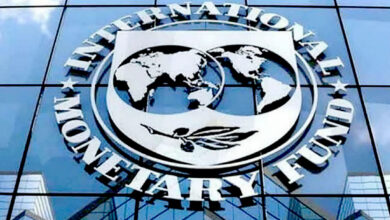Asia’s stock market falls because the Fed is sending “hawkish” signals and the central bank is being careful.

Asian stock markets fell on Thursday because the Federal Reserve didn’t change its hawkish language even though inflation was going down. The fact that central bank meetings were coming up in Europe and the UK also made people nervous.
Rates were raised by 50 basis points (bps) by the Federal Reserve on Wednesday, as was expected. But Chair Jerome Powell said that rates are likely to peak at higher levels than expected and that the central bank has no plans to become more dovish soon.
Related: Japan’s stock market is up at the end of the day; the Nikkei 225 is up 0.40.
Even though he said this, recent data showed that U.S. inflation was falling further from its annual highs. This was because interest rates were going up and economic growth was slowing. But Powell’s comments suggest that the current cycle of rate hikes by the central bank is far from over.
Still, the markets are now pricing in a smaller rate hike of 25 basis points in February.
This year, rising interest rates hurt Asian stocks a lot. Tighter money conditions and higher bond yields also made people less interested in buying stocks. The interest rate decisions from the Bank of England and the European Central Bank, which are both due later on Thursday, are also getting a lot of attention. Both central banks are likely to raise rates by 50 basis points (bps) as they try to stop inflation from getting too high.
The Hang Seng index in Hong Kong and the KOSPI in South Korea, which are both based on technology, fell more than 1% each.
Weak data also hurt the mood in the region. Numbers from a number of major countries showed that the Asian economy was still under pressure.
The Nikkei 225 index dropped 0.4% because Japan had a bigger trade deficit than expected in November. This was because strong exports did not make up for high fuel and food imports.
Chinese stocks also went down because industrial production and retail sales were much worse than expected. Both the Shanghai Composite index and the blue-chip Shanghai Shenzhen CSI 300 index fell about 0.3%.
Regional markets were also hurt by the fact that nobody knew how fast China would reopen. This month, the government loosened some restrictions on COVID, but the country is also dealing with a big rise in COVID-19 cases. Investors were worried that the growing number of cases could delay reopenings.
Southeast Asian stocks, which are risky, also went down on Thursday. Both the Thai and Philippine stock markets lost about 0.6%.
Related: Japan’s stock market is up at the end of the day; the Nikkei 225 is up 0.24%.
The stocks of Indonesian companies also went down after data showed that the country’s exports in November went up less than expected.





